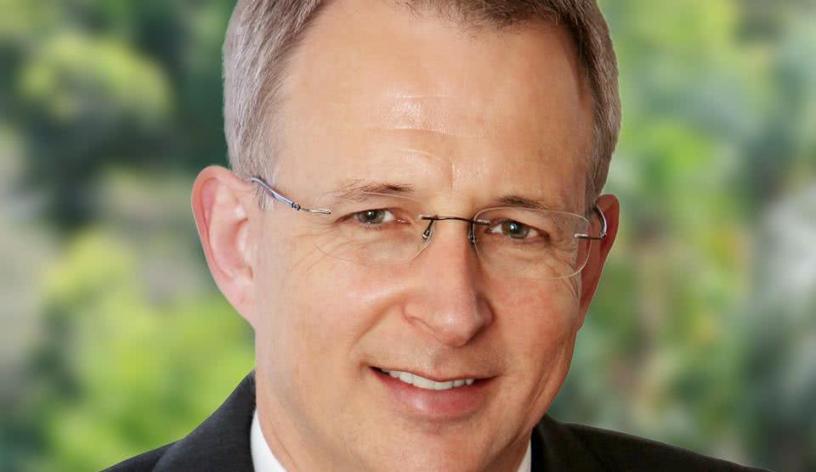Paul Fletcher.
The commercial free-to-air networks and Foxtel are major beneficiaries of the Federal Government’s package of measures to help sustain Australian media businesses during the COVID-19 pandemic.
The FTA networks will get $41 million in tax relief via a 100 per refund of the broadcasting spectrum tax and will save money from the suspension of the local content quotas for drama, documentary and children’s programming until the end of this year.
Similarly, the government is waiving the rule obliging pay TV drama channels to spend at least 10 per cent of their revenues on local content for the rest of 2020.
Screen Producers Australia CEO Matt Deaner slammed the total suspension of the quotas as a “very blunt tool,” particularly given that animation and documentary programming could still have been commissioned, keeping people in jobs during the wider shut down.
“These hard cuts have the potential to at worst cripple Australia’s production industry and at best snuff the opportunities for a rebound for much of our sector at a time when it is facing a very real battle for survival,” Deaner said.
“This announcement will just load up the pain on Australia’s struggling arts and creative sector, most of whom are now out of work and falling through the cracks of assistance measures.
“With no incentive for the broadcasters to release hundreds of hours of already delivered but not yet broadcast children’s, drama and documentary content, it harms the Australian public’s ability to access the content which is sitting gathering dust on shelves.”
Announcing the package, Minister for Communications, Cyber Safety and the Arts Paul Fletcher said he would decide before the end of this year whether this
“emergency red tape reduction measure” should continue in 2021.
“COVID-19 has effectively halted production of Australian screen content, making it impossible for free-to-air and subscription television businesses to meet Australian content obligations,” Fletcher said.
The commercial TV and radio stations and newspapers in regional Australia will share in a $50 million Public Interest News Gathering (PING) program to support public interest journalism.
There is no change to the requirement for broadcasters to meet an overall 55 per cent Australian content obligation. Free TV Australia CEO Bridget Fair described that as a “concern for the industry in an environment where there is less sport, drama and entertainment programming available due to the suspension or cancellation of many productions.”
Noting the significant financial and operational impacts of the crisis on broadcasters which will take years to play out, Fair suggested further relief on content quotas would be needed in future years.
Welcoming the package, Nine CEO Hugh Marks said: “We thank the Minister for his efforts and the measures announced today which provide some short term relief to Australia’s media businesses.
“However, the COVID-19 crisis only serves to further highlight the need for urgent long term solutions to the regulatory imbalance between highly regulated domestic media players and unregulated international technology companies.”
The FTA broadcasters have long lobbied the government to adopt key proposals in the ACCC’s final digital platforms report, including a code of conduct which would oblige Google and Facebook to pay for the use of their content on their platforms.
Australian Children’s Television Foundation CEO Jenny Buckland acknowledges the quota relief for broadcasters was inevitable, given the production shutdown and collapsing revenues.
But she observes: “This compounds the issues children’s producers were already up against with broadcasters refusing to commission children’s content and underscores the tragic impact the virus has had on all the businesses and workers that make up this sector.”
Despite the concession to Foxtel, CEO Patrick Delany laments the package gives little attention to the subscription TV sector and he accused the government of failing to understand the industry’s dynamics.
“Current regulation is effectively a discriminatory tax on Foxtel which impacts our ability to compete on a level playing field with free-to-air television,” Delany tells IF.
“This disadvantage has been compounded by the emergence of aggressive international players that are vertically integrated from content creation through to exclusive distribution with global scale and unlimited funding which has created a toxic competitive environment threatening Australian jobs and future investment in local content including sport.”
Releasing the options paper prepared by Screen Australia and the ACMA, Fletcher invited submissions through the have your say page and promised consultation with key stakeholders, including ministerial roundtables, over the next eight weeks.
Fletcher said: “Regulated free-to-air broadcasters are competing with unregulated digital platforms and video streaming services. It has been evident for some time – and the COVID-19 crisis has made it even more obvious – that this is not sustainable.
“These arrangements threaten the sustainability of television broadcasters – and in turn the sustainability of the film and television content production sector.
“That is why I want to seek industry feedback on the options put forward by ACMA and Screen Australia and work with industry on a plan for the future, including how to best secure the market opportunity created by the explosion of streaming services.
“We need to re-emerge from COVID-19 with a regulatory framework suited to the twenty-first century that recognises today’s competitive landscape – where television broadcasters compete with streaming services and a myriad of other internet-based businesses – and which positions both the television sector and the content production sector for a sustainable future.”
Seven West Media CEO James Warburton applauded the fast-tracked consultation process to deliver content reform and restated calls to ensure foreign digital platforms are paying fairly for content.



